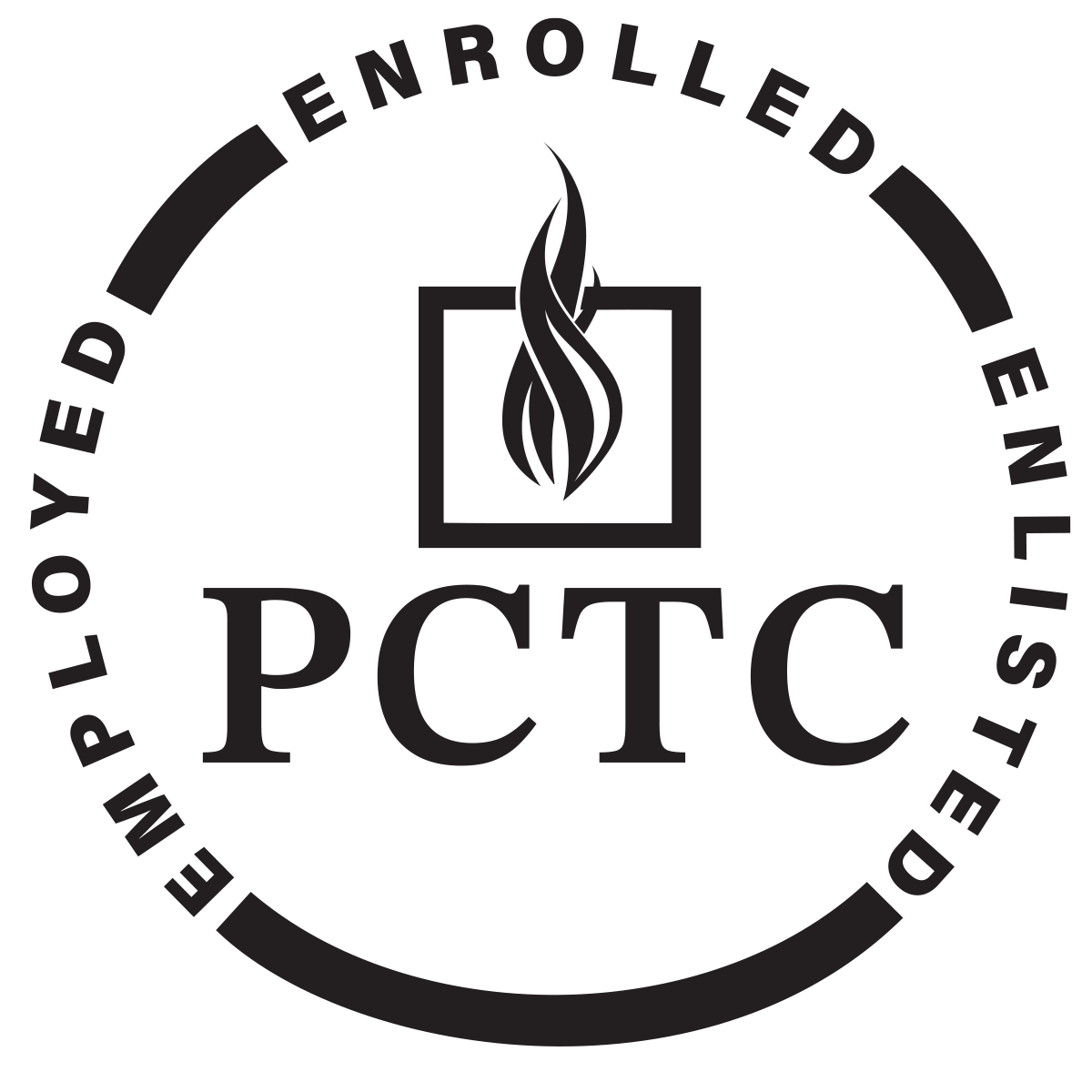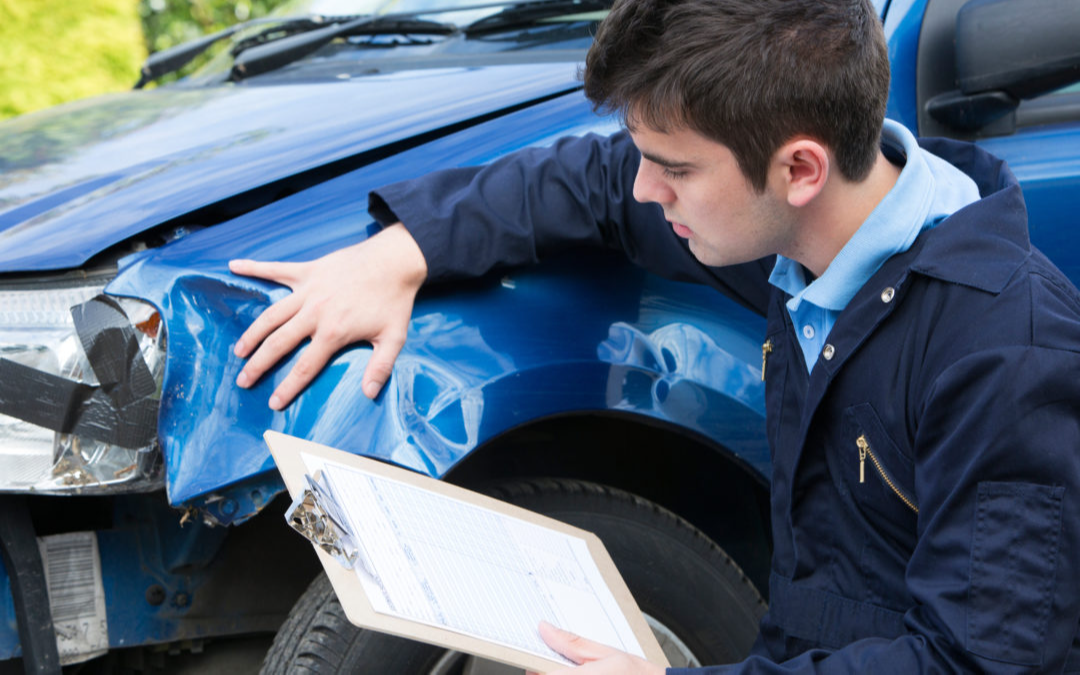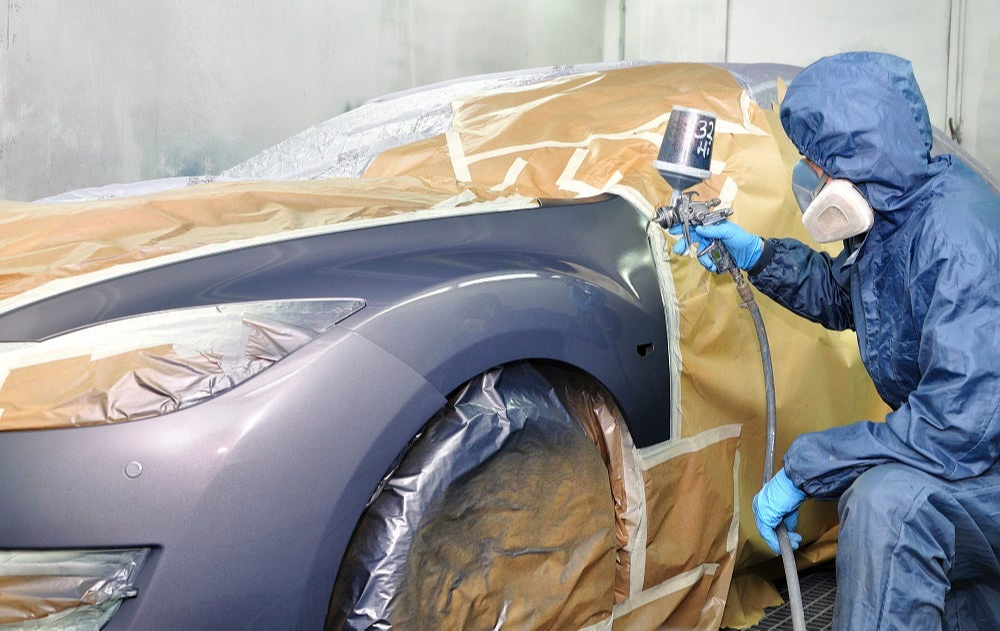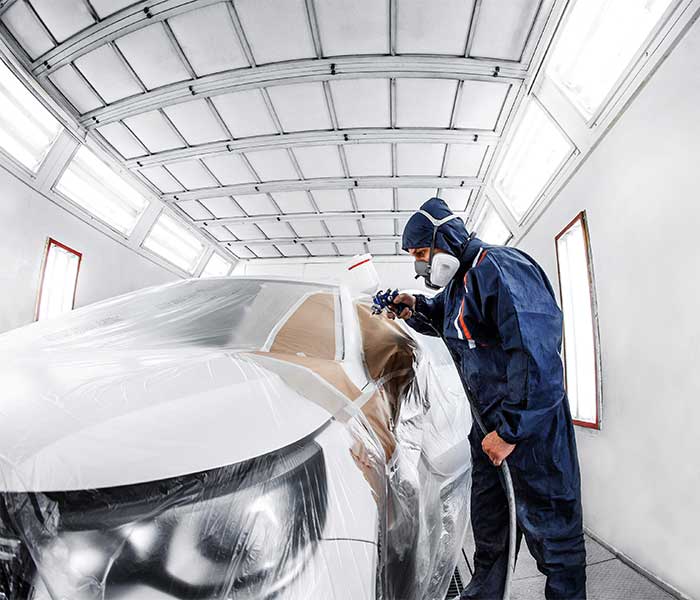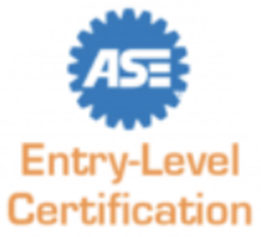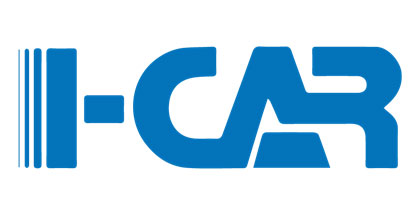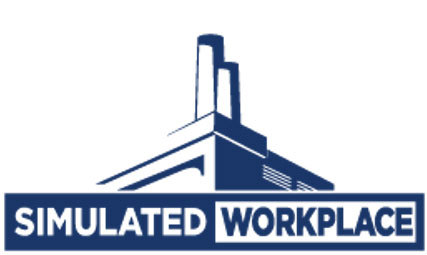COLLISION REPAIR TECHNOLOGY
The Collision Repair Technology major trains the students to repair or replace damaged parts and spot repair or completely refinish automobile bodies.
Collision Repair Technology concentration focuses on careers that will build a knowledge base and technical skills in all aspects of the Collision Repair industry. Students will have the opportunity to earn certifications and be exposed to skills to develop positive work ethics.
WHAT ARE THE CLASSES ABOUT?
In the fundamentals of Collision Repair Technology class, areas of study include career opportunities and practices, integrated academics, knowledge of tools and equipment, panel straightening techniques, parts replacement, and introduction to vehicle preparation.
Safety instruction is integrated into all activities.
WHAT SKILLS WILL STUDENTS LEARN?
Estimate the cost of a repair job
Pound out small dents with a hammer, pick hammer, or punch
Straight bent or twisted frames/Weld metal parts
Working in adverse noisy/dirty environments
Remove parts to gain access to vehicle body and fenders
Remove, repair, or replace fenders, doors, or other body parts
Fill damaged areas with solder or plastic body fillers
Fill, grind, sand, and smooth filled or repaired surfaces
Refinish with a primer coat, sand and paint with a finish coat
Aim headlights and align wheels
Students will also perform “live work” for customers which provides them with valuable experience in prepping and painting, welding, and metal straightening. Academic’s focus on basic math skills and technical writing.
WHAT CREDENTIALS ARE AVAILABLE?
Students can test for an Automotive Service Excellence (ASE) Student Certification and I-Car Certification
WHAT JOBS/JOB TITLES ARE AVAILABLE TO THE STUDENTS AFTER GRADUATION?
Auto Body Man
Auto Body Repair Technician (Auto Body Repair Tech)
Auto Body Repairman
Automotive Body Technician (Auto Body Tech)
Body Man
Body Technician (Body Tech)
Collision Repair Technician (Collision Repair Tech)
Collision Technician (Collision Tech)
Frame Man
Refinish Technician (Refinish Tech)
WHAT WORK SKILLS WILL BE NEEDED FOR THESE JOBS?
Team player
Mathematical
Strong concentration and focus
Valid Driver’s License
Understand math and physics
Detail oriented
Scientific
Persistent
Troubleshoot problems
Self-motivated
Problem solving skills
Lift heavy loads
WHAT SKILLS SHOULD A STUDENT HAVE TO BE SUCCESSFUL IN YOUR PROGRAM?
Physically (sitting, standing, lifting) demanding with the need for hard work in a stressful and active environment. Someone who enjoys being around automobiles and is meticulous in working towards finishing structural damage to the car. Students will also need to be drug free.
PROGRAM REQUIREMENTS
Students must pass curriculum safety component to continue in the program.
Currently hold or eligible to obtain a valid driver’s license
SIMULATED WORKPLACE REQUIREMENTS
This program participates in the West Virginia Department of Education Simulated Workplace environment.
For more information and requirements, click here.
TECHNOLOGY REQUIREMENTS
Students will be provided with any technology instruction, devices and software required.
STUDENT ORGANIZATION
Students may enroll in SkillsUSA.
PROGRAM LENGTH
2 Academic Years (22 months) – 1080 clock hours (Secondary & Adult part-time enrollment)
1 Academic Year (10 months) – 1080 clock hours (Adult full-time enrollment)
Consisting of eight (8), nine-week courses of 135 clock hours each
SCHEDULE OF COURSES
Course Frequency: Each course offered once each academic year
Secondary & Adult Part-time schedule shown below.
Adult Full-time schedule includes the 1st year schedule in the morning and the 2nd year schedule in the afternoon
1ST YEAR SCHEDULE: MONDAY-FRIDAY 8:30AM – 11:00AM
1671 Fundamentals of Collision Repair Technology
1675 Non-Structural Analysis and Damage Repair
1677 Structural Analysis and Damage Repair
1679 Surface Preparation and Refinishing
3052 Transitional Math
2ND YEAR SCHEDULE: MONDAY – FRIDAY 12:30PM – 3:00PM
1674 Refinishing Techniques
1673 Mechanical and Electrical Components
1672 Detailing and Interior Parts
1676 Custom Finishing Processes
COURSE DESCRIPTIONS
1671 FUNDAMENTALS OF COLLISION REPAIR
This course introduces the student to the knowledge base and technical skills as they relate to the field of Collision Repair Technology. In the Fundamentals of Collision Repair Technology class areas of study include career opportunities and practices, integrated academics, knowledge of tools and equipment, panel straightening techniques, and introduction to vehicle preparation. Safety instruction is integrated into all activities. Students utilize problem-solving techniques and participate in hands-on activities to develop an understanding of course concepts. Teachers should provide each student with real world learning opportunities and instruction. Students are encouraged to become active members of the student organization, WV SkillsUSA. All West Virginia teachers are responsible for classroom instruction that integrates learning skills, technology tools, and skill sets.
1675 NON-STRUCTURAL ANALYSIS AND DAMAGE REPAIR
Non-Structural Analysis and Damage Repair will continue to build student skill sets in non- structural analysis and repair of metal and composite parts. Students will utilize integrated academics, problem-solving techniques, and manipulative skills while completing lab activities to develop an understanding of course concepts. Safety instruction is integrated into all activities. Students utilize problem-solving techniques and participate in hands-on activities to develop an understanding of course concepts. Teachers should provide each student with real world learning opportunities and instruction. Students are encouraged to become active members of the student organization, WV SkillsUSA. All West Virginia teachers are responsible for classroom instruction that integrates learning skills, technology tools, and skill sets.
1677 STRUCTURAL ANALYSIS AND DAMAGE REPAIR
Structural Analysis and Damage Repair will continue to build student skill sets in frame and unibody type vehicles using welding techniques, measuring equipment, and frame machines. Students utilize problem-solving techniques and participate in hands-on activities to develop an understanding of course concepts. Teachers should provide each student with real world learning opportunities and instruction. Students are encouraged to become active members of the student organization, WV SkillsUSA. All West Virginia teachers are responsible for classroom instruction that integrates learning skills, technology tools, and skill sets.
1679 SURFACE PREPARATION AND REFINISHING
Surface Preparation and Refinishing will continue to build student skill sets in preparing a surface for refinishing; inspect, clean and operate spraying equipment; detail a vehicle; and diagnose finish defects. Students utilize problem-solving techniques and participate in hands-on activities to develop an understanding of course concepts. Teachers should provide each student with real world learning opportunities and instruction. Students are encouraged to become active members of the student organization, WV SkillsUSA. All West Virginia teachers are responsible for classroom instruction that integrates learning skills, technology tools, and skill sets.
3052 TRANSITIONAL MATH
1674 REFINISHING TECHNIQUES
The Skill Sets in this course are representative of the basic knowledge included in a Career and Technical Collision Repair Technology Program of Study. Incorporated into this course are elements of advanced refinishing skills necessary for a career in the collision repair industry. This course is recommended as an Elective in Collision Repair Technology.
1673 MECHANICAL AND ELECTRICAL COMPONENTS
The Skill Sets in this course are representative of the basic knowledge included in a Career and Technical Collision Repair Technology Program of Study. Incorporated into this course are elements of introductory knowledge and skills necessary for mechanical and electrical repairs as they apply to Collision Repair Technology. This course is recommended as an Elective in Collision Repair Technology.
1672 DETAILING AND INTERIOR PARTS
The Skill Sets in this course are representative of the basic knowledge included in a Career and Technical Collision Repair Technology Program of Study. Incorporated into this course are elements of introductory knowledge and skills necessary in detailing and interior parts for those enrolled in Collision Repair Technology. This course is recommended as an Elective in Collision Repair Technology.
1676 CUSTOM FINISHING PROCESSES
The Skill Sets in this course are representative of the basic knowledge included in a Career and Technical Collision Repair Technology Program of Study. Incorporated into this course are elements of advanced custom finishing processes and skills necessary for a career in the collision repair industry. This course is recommended as an Elective in Collision Repair Technology.
